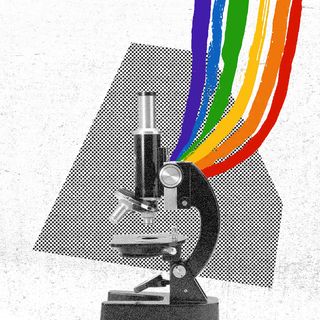A research paper published in the respected journal Nature Communicationshas received backlash from the scientific community for concluding that women in STEM offer poor mentorship that doesn’t aid young scientists’ — especially young women’s — careers. This research wasn’t received well by the scientific community mainly because the paper’s authors arrived at a gender-biased conclusion: that women in science should avoid female mentors.
The researchers found that junior women scientists who worked with women mentors on research received less acclaim and citations for their work, as compared to junior women who worked on research with male mentors. Research authors used an algorithm called Genderize to analyze a dataset including 215 million scientists and 222 million papers and identified 3 million unique mentor-junior pairs. They inferred the gender and seniority of the scientists by their names and the number of years since they first published research, respectively. Senior scientists co-authoring a paper with junior scientists were considered mentors.
“Instead of coming to the conclusion that their data shows the system is biased, they come to the conclusion that women shouldn’t be mentors, which is blaming individuals as opposed to blaming a broken system. That’s why I think it’s so harmful,” Rebecca Barnes, a geoscientist and co-principal investigator for a women’s mentorship grant, told The Scientist. Barnes is also the author of a 2020 study linking women trainee retention in geosciences to women role models.
Related on The Swaddle:
Despite Education Gains, STEM Women in India Still Face Unequal Field
The Nature Communications paper underwent a peer-review process, in which a submission is evaluated by people with similar competencies as those who authored the paper. The reviewers pointed out multiple concerns with the study, but the journal published the study accompanied by a list of the concerns. This means that the authors of the paper chose not to address or resolve the peer-reviewers’ red flags. Scientists on social media pointed out the research paper’s definition of mentorship was limited to writing a paper with someone. Plus, they critiqued, the gender-identification methodology was binary and likely to cause errors, considering how many names can be gender-neutral. The authors themselves state the Genderize algorithm couldn’t classify — and therefore excluded from analysis– around half of the names in the massive dataset.
Plus, it is common knowledge that women in STEM cope with gender-specific bias. Male scientists get more recognition and citations than female scientists, as the authors of this study point out themselves. The authors of this study state, “there are social aspects that are not captured by our observational data” — yet, they still place the onus of a broken system on women, with superficial explanations like women aren’t good mentors because women belong to “more committees, thereby reducing the time they are able to invest in their protégés.”
As the backlash built, Dr. Leslie Vosshall, a neurobiologist at The Rockefeller University, shared an open letter to the editor-in-chief of Nature Communications asking the journal to rescind the article, “for the good of the global scientific community.”
Open letter to the Editor-in-Chief of @NatureComms about the AlShebli paper, which claims that training with #WomenInSTEM damages the careers of young scientists pic.twitter.com/NvuBK3Z5T6
As of now, the study is still up, with an attached editor’s note. It reads: “Readers are alerted that this paper is subject to criticisms that are being considered by the editors. Those criticisms were targeted to the authors’ interpretation of their data that gender plays a role in the success of mentoring relationships between junior and senior researchers, in a way that undermines the role of female mentors and mentees. We are investigating the concerns raised and an editorial response will follow the resolution of these issues.”




